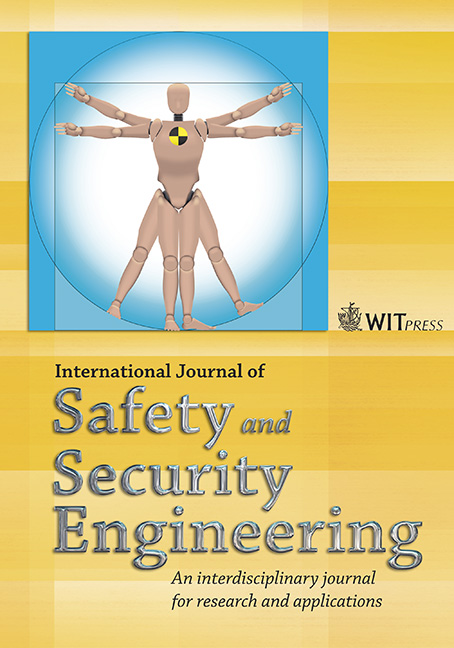Optimal tradeoffs between the security and cost of critical buildings and infrastructure systems
Price
Free (open access)
Volume
Volume 8 (2018), Issue 2
Pages
7
Page Range
299 - 306
Paper DOI
10.2495/SAFE-V8-N2-299-306
Copyright
WIT Press
Author(s)
STEVEN SCHULDT & KHALED EL-RAYES
Abstract
Explosive terrorist attacks targeting critical buildings and infrastructure systems pose a formidable threat worldwide, having caused 12,425 casualties and $20 billion in direct economic losses in 2015 alone. Designers of these critical buildings attempt to minimize the security risks to site personnel and buildings by analyzing and selecting the most effective combination of: (1) increasing the standoff distance between site assets and potential locations of explosive attacks; (2) constructing blast-mitigating perimeter walls; and (3) hardening site facilities. To support designers in this critical and challenging task, this paper presents the development of a multi-objective optimization model capable of generating optimal tradeoffs between minimizing total site destruction levels and minimizing site construction costs. The model com- putations are performed utilizing the nondominated sorting genetic algorithm II (NSGA-II) because of its proven capability in modeling non-linear objective functions and constraints, and its successful modeling of previous facility layout problems. The model performance was evaluated using a case study of a hypo- thetical military forward operating base, and the results illustrated the novel capabilities of the developed model in identifying design configurations that generate optimal tradeoffs between the aforementioned optimization objectives. These capabilities are expected to support designers in their ongoing efforts to construct cost-effective sites that minimize the security risks to personnel and buildings from the threat of explosive terrorist attacks.
Keywords
blast effects, blast wall, critical infrastructure, facility layout, genetic algorithms, optimization, security




